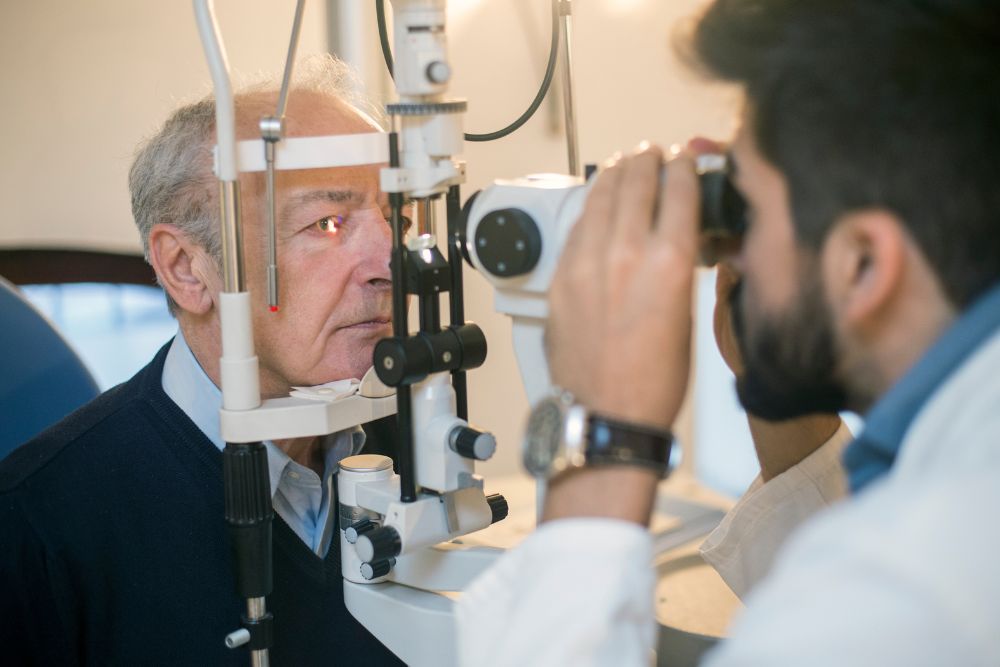Living with Eye Floaters: Should You Seek Treatment or Wait It Out?

When most people think of eye anatomy, they recall familiar parts like the pupil or retina. But one important structure often goes unnoticed: the vitreous. This transparent, gel-like substance fills the space between the lens and retina, helping the eye maintain its shape and allowing light to pass through to the retina.
As we age, the vitreous naturally begins to liquefy and shrink. In the process, tiny protein fibers or gel-like particles can clump together. When these clumps drift inside the eye, they cast shadows on the retina, appearing across your vision as small spots, threads, or cobweb-like shapes known as eye floaters. For most people, a few occasional floaters are simply a natural part of aging. While they can be distracting, they are usually harmless, and the brain often learns to ignore them over time.
When Floaters Signal Something More Serious
For many patients, floaters remain stable and don’t interfere significantly with daily activities. There are times, however, when new or worsening floaters should not be ignored. Seek care from a retina specialist if you notice:
- A sudden increase in floaters
- Flashes of light in your vision
- A dark curtain or shadow moving across your field of view
- Blurred or distorted central vision
These symptoms can indicate a retinal tear, which happens when the vitreous pulls too strongly on the retina, creating a split. Left untreated, a tear can progress into a retinal detachment—a sight-threatening condition that requires urgent treatment.
Treatment Options
Typically, floaters don’t require treatment, and the best approach is simply to monitor them over time with regularly scheduled eye exams. In rare cases where floaters are especially dense or disruptive, treatment options may include vitrectomy, a surgical procedure where the vitreous gel is removed and replaced with a clear solution to help the eye maintain shape.
Individualized Care at Retina Group Florida
Living with floaters can be frustrating, but in most cases, they are a harmless part of aging. At Retina Group of Florida, our specialists carefully evaluate your individual situation, explain whether treatment is necessary, and guide you toward the safest path forward. With expert evaluation and ongoing monitoring, you can feel confident knowing your vision health is in good hands. If you’ve noticed new floaters, contact Retina Group of Florida to discuss your concerns with a specialist.

